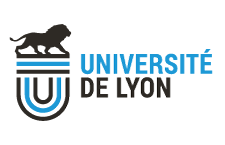Forum infectiologie du CIRI soutenu par ECOFECT : Dr Joseph Marcotrigiano
Colloque / Séminaire
le 14 octobre 2014 /
Le mardi 14 octobre prochain à 11h, le CIRI organise avec le soutien du LabEx ECOFECT, une conférence donnée par le Pr Joseph Marcotrigiano du Center for Advanced Biotechnology and Medicine, Department of Chemistry and Chemical Biology, New Jersey (USA).

Le Pr Joseph Marcotrigiano est internationalement reconnu pour ses travaux sur le virus de l'hépatite C (HCV) et la réponse innée. Son laboratoire a notamment déterminé la structure de la glycoprotéine E2 de HCV. Ce travail correspond à un réel challenge méthodologique qui a apporté des avancés conceptuelles importantes dans le domaine (Nature 2014. May 15;509(7500):381-4. doi: 10.1038/nature13117. Epub 2014 Feb 19).
Résumé de la conférence : "Structural insights into HCV entry and the innate immune response."
The Marcotrigiano laboratory is studying hepatitis C virus (HCV) entry, replication and host responses to infection. Worldwide, more than 160 million individuals are chronically infected with HCV. At present, there is no effective vaccine against HCV or entry inhibitor. Both vaccine development and entry inhibitors depend critically on successful structural and mechanistic studies of HCV surface glycoproteins and their interactions with obligate cellular receptors. Until recently such work has been hampered by the challenges inherent in preparing homogenous samples of disulfide rich proteins with complex, post-translational modifications (PTMs). To overcome this hurdle, we developed a mammalian cell expression system capable of producing large quantity of such proteins with a variety of PTMs. Our technology development efforts recently enabled successful crystallographic and mechanistic studies of HCV envelope glycoprotein E2 (Khan et al. Nature, 2014). In addition, we have determined the mechanism of self vs non-self differentiation of RNA molecules by a critical, cellular innate immune receptor (RIG-I, retinoic-acid-inducible gene-I) (Saito et al. Nature, 2008; Jiang et al. Nature, 2011). Our long-term goal is to understand the interactions between HCV and host, paving the way towards developing novel antiviral drugs, vaccines, and immunomodulators.
Résumé de la conférence : "Structural insights into HCV entry and the innate immune response."
The Marcotrigiano laboratory is studying hepatitis C virus (HCV) entry, replication and host responses to infection. Worldwide, more than 160 million individuals are chronically infected with HCV. At present, there is no effective vaccine against HCV or entry inhibitor. Both vaccine development and entry inhibitors depend critically on successful structural and mechanistic studies of HCV surface glycoproteins and their interactions with obligate cellular receptors. Until recently such work has been hampered by the challenges inherent in preparing homogenous samples of disulfide rich proteins with complex, post-translational modifications (PTMs). To overcome this hurdle, we developed a mammalian cell expression system capable of producing large quantity of such proteins with a variety of PTMs. Our technology development efforts recently enabled successful crystallographic and mechanistic studies of HCV envelope glycoprotein E2 (Khan et al. Nature, 2014). In addition, we have determined the mechanism of self vs non-self differentiation of RNA molecules by a critical, cellular innate immune receptor (RIG-I, retinoic-acid-inducible gene-I) (Saito et al. Nature, 2008; Jiang et al. Nature, 2011). Our long-term goal is to understand the interactions between HCV and host, paving the way towards developing novel antiviral drugs, vaccines, and immunomodulators.
A propos de Joseph Marcotrigiano : http://www3.cabm.rutgers.edu/faculty_and_research/marcotrigiano.php
Contact : Marlène Dreux, marlene.dreux@ens-lyon.fr



 Accueil
Accueil Communication
Communication Contacts
Contacts Emploi
Emploi Liens
Liens WebAdmin
WebAdmin